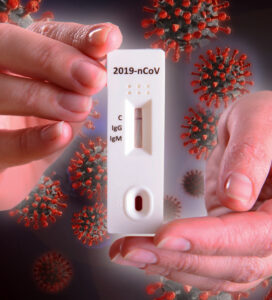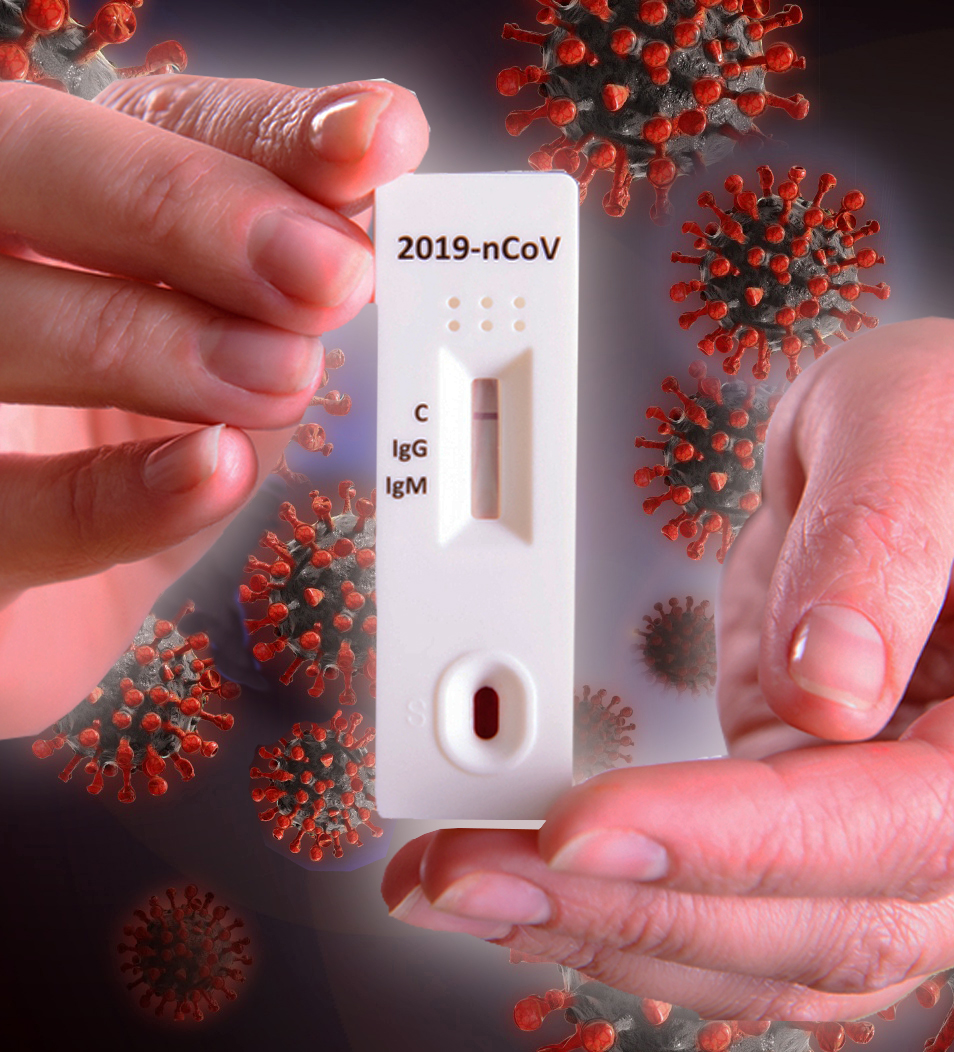 Some at-home rapid COVID-19 tests contain a toxic chemical that may be harmful to both children and adults, according to health officials.
Some at-home rapid COVID-19 tests contain a toxic chemical that may be harmful to both children and adults, according to health officials.
The Cincinnati Drug and Poison Information Center reported an increase in accidental exposures to a possibly toxic substance, sodium azide, in at-home COVID-19 test kits, according to a blog post. Meanwhile, the National Poison Control Center issued a warning about the chemical.
“It is important to know that the extraction vial in many rapid antigen kits includes the chemical sodium azide as a preservative agent,” the center said. “The BinaxNow, BD Veritor, Flowflex, and Celltrion DiaTrust COVID-19 rapid antigen kits all contain this chemical.”
Sodium azide is a colorless, odorless powder that testers dip cotton swabs into. The chemical is found in herbicides, pest control agents, and even airbags for cars.
“Small doses of sodium azide can lower blood pressure, and larger doses may cause more serious health effects,” an advisory from Health Canada also said.
“ProClin is also found in many kits. It contains chemicals that can cause skin and eye irritation, as well as allergic reactions.”
Hospitals in the United States have received an increase in phone calls about exposures to the chemical.
“We started getting our first exposures to these test kits around early November,” said Sheila Goertemoeller, pharmacist and clinical toxicologist for the Cincinnati Children’s Hospital Medical Center. “It was, really, all ages.”
“Mostly, I’ve been very worried about our young children.”
Accidental exposure is occurring among both children and adults, said Dr. Kelly Johnson-Arbor, with the National Capital Poison Center in Washington, told WNEP over the weekend.
“People might mistake them for eye drops. Children might drop it onto their skin. Adults will sometimes mistakenly put them into their eyes,” she said.
“You don’t want to leave it on the skin because it could potentially cause an allergic reaction or a skin rash.
“If someone drinks the solution, it’s really important to contact poison control right away. The solutions have different ingredients. Some have non-toxic ingredients and others have more dangerous ingredients.”
Officials said that there’s no need to throw away the test kits, but people should be mindful when using them.
“Use them properly, dispose of them properly, and it won’t cause an issue,” Dr. Jeffrey Jahre, with St. Luke’s University Health Network, told the outlet.
If you suspect you or someone you know has ingested the chemical, officials recommend not to make the person vomit. For eye exposures, rinse the eyes for 15 to 20 minutes with warm water. For skin exposures, rinse the skin well with tap water.
Immediately check the Poison Control Center’s online tool for guidance or call poison control at 1-800-222-1222.
Ron Benvenisti


I love how this was shoved under the rug and whoever mentioned an issue was labeled a kook until now. I wonder how much more the “conspiracy theorist” got correct….
@CEE, the differance between truth and conspiracy theory is about 12 months